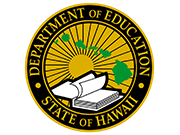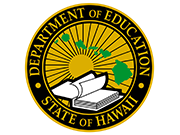
The Hawaii State Department of Education (HIDOE) works closely with educators annually to refine the Educator Effectiveness System (EES) to streamline and strengthen supports for improving teacher practice.
Based on feedback received from educators and the collaborative work of the Hawaii State Teachers Association-HIDOE EES Joint Committee, I am pleased to release the following information regarding improvements to EES for School Year (SY) 2019-20:
Tiered Comprehensive Evaluation Tracks for Emergency Hires, Probationary Teachers, Marginal, Tenured On-Cycle and Off-Cycle
To promote personalized professional growth through data, feedback, and reflection for all teachers regardless of experience and level of performance, EES will diversify the data collection, performance expectations, and support processes for new teachers, including those without teaching credentials, to ensure appropriate supports in the early stages of their career.
Five-year Comprehensive Evaluation Cycle for Tenured Teachers
Utilizing a rollout based on Social Security Numbers (last number of SSN), tenured teachers will be engaged in a comprehensive evaluation every five years, and focus on feedback and professional growth annually in all other years:
| School Year | Last Digit of SSN |
| SY 2019-20 | 2 & 4 |
| SY 2020-21 | 6 & 8 |
| SY 2021-22 | 0 & 9 |
| SY 2022-23 | 1 & 3 |
| SY 2023-24 | 5 & 7 |
Options for Individual Professional Development Plans (IPDP) to Promote Design Thinking and Action Research for Tenured Teachers in Off-Cycle Years
With a focus on School and Curricular Design, Student Voice, and Teacher Collaboration, EES will expand the ways in which tenured teachers may engage with their colleagues to transform practices, school culture, and teacher leadership to benefit student learning and aspirations. View a sample template here.
Teacher Focus on Student Growth
In an effort to eliminate the predictive nature of expected targets, EES will focus on student-centered growth that assesses what is valued in the school or Complex Area rather than on Student Learner Outcomes (SLOs). Teachers and administrators will have the flexibility to determine the appropriate assessments and measures of student growth.
Overall, these changes reflect the Department’s continued commitment to simplify teacher evaluations while ensuring that educators are provided with feedback to inform practice and advance student learning and achievement. Further implementation guidance and details on these adjustments will be reflected in the SY2019-20 EES Manual.
Questions about EES adjustments may be directed to Office of Talent Management, EES Help Desk at (808) 586-4072.

